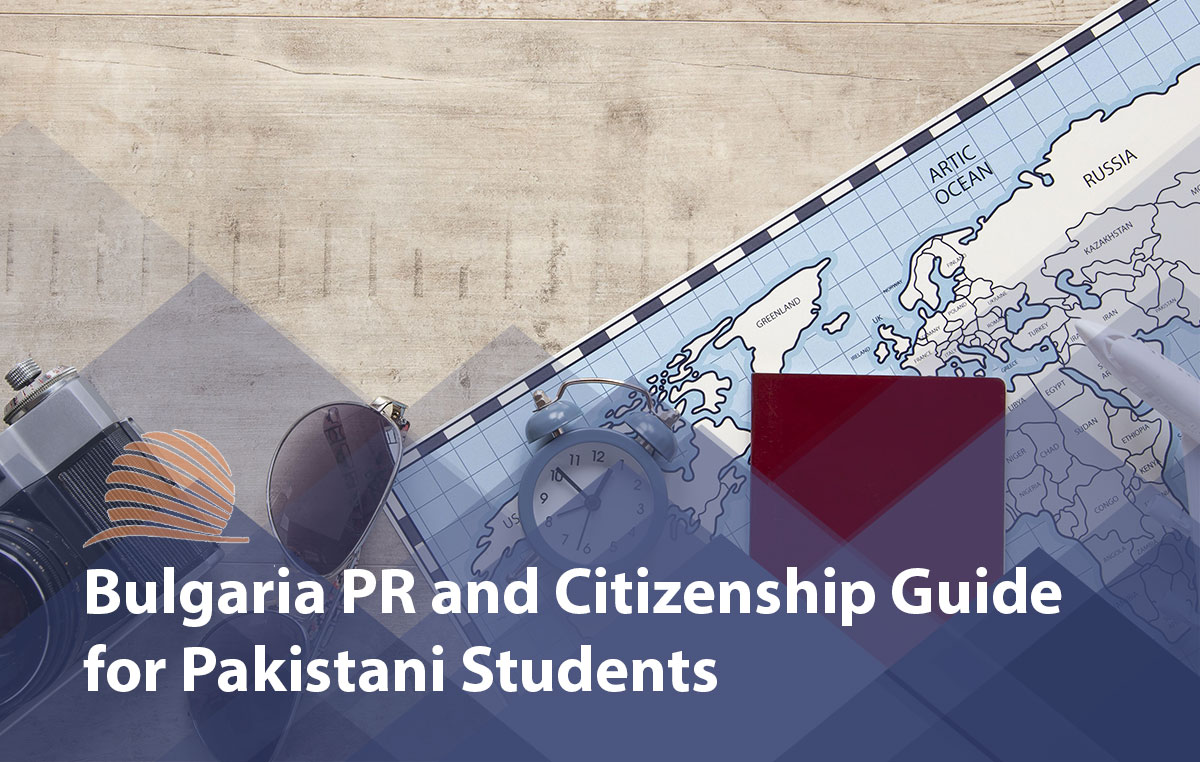Why Pakistani Students Choose Bulgaria As Study Destination

Study abroad expert advice
Don't waste time! just fill the form to get help.
PR & Citizenship of Bulgaria for Pakistani Students
For many Pakistani students, studying in Bulgaria is not only about pursuing higher education but also about exploring long-term opportunities in Europe. Bulgaria, being an EU member state, offers pathways to permanent residency (PR) and eventually citizenship, making it an attractive destination for international students who want to settle abroad.
This guide explains the PR and citizenship process in Bulgaria for Pakistani students, including requirements, timelines, and benefits.
Why Consider PR in Bulgaria?
Bulgaria is part of the European Union (EU), which gives PR holders the ability to:
- Live and work legally in Bulgaria.
- Travel visa-free across the Schengen Zone (Bulgaria is expected to fully join Schengen soon).
- Access better healthcare, education, and social security.
- Eventually apply for Bulgarian citizenship, which provides the right to live and work anywhere in the EU.
PR Options for Pakistani Students
Pakistani students have several pathways to apply for permanent residency in Bulgaria after completing their studies:
Pathway | Eligibility | Timeline |
Work-based PR | Work full-time in Bulgaria after graduation | 5 years |
Business/Investment PR | Invest in Bulgarian economy or start a business | 1–3 years (depending on investment size) |
Family Reunification | Marriage to a Bulgarian citizen or PR holder | 3 years |
Long-term Student Stay (Post-graduation) | Convert student visa to work/residence permit | 5 years |
Requirements for PR in Bulgaria
To qualify for PR, Pakistani students generally need to:
- Stay in Bulgaria continuously for at least 5 years (legal stay as a student counts towards this).
- Show proof of stable income or employment.
- Have valid health insurance.
- Provide a clean criminal record.
- Demonstrate integration into Bulgarian society (language, work, or cultural ties).
Bulgarian Citizenship for Pakistani Students
After obtaining PR, Pakistani students can apply for Bulgarian citizenship through naturalization.
General requirements for citizenship:
- Hold PR for at least 5 years.
- Demonstrate proficiency in the Bulgarian language.
- Show financial stability and no criminal background.
- Take an oath of loyalty to Bulgaria.
This means that a Pakistani student can potentially apply for Bulgarian citizenship in about 10 years (5 years as a student + 5 years on PR).
Benefits of Bulgarian Citizenship
Becoming a Bulgarian citizen comes with powerful advantages:
- EU Passport: Travel and work freely across 27 EU countries.
- Visa-free travel: Over 170 countries, including Schengen states, Japan, and Canada.
- Employment opportunities: Work anywhere in the EU without needing a work permit.
- Political rights: The ability to vote and participate in Bulgarian elections.
- Family benefits: Easier to bring family members to Bulgaria or EU countries.
Challenges in Getting PR & Citizenship
While the process is rewarding, there are some challenges for Pakistani students:
- Language barrier: Bulgarian language proficiency is often required for citizenship.
- Lengthy timeline: It takes several years of legal stay.
- Strict documentation: Applicants must maintain continuous legal residence and provide multiple supporting documents.
- Financial requirements: Students must prove they can support themselves during the stay.
Alternative Routes for Faster Citizenship
Pakistani students with financial resources can explore Bulgarian Citizenship by Investment (CBI) program. This allows foreign nationals to obtain citizenship in 2–5 years by investing at least €512,000 in Bulgarian government bonds or other approved investments.
Though this option is costly, it is one of the fastest ways to gain EU citizenship.
Post-Study Opportunities Leading to PR
Many Pakistani students choose to stay in Bulgaria after completing their education by:
- Applying for post-study work permits.
- Joining Bulgarian companies in IT, healthcare, and engineering sectors.
- Starting small businesses, as Bulgaria has one of the lowest corporate tax rates in the EU (10%).
This not only secures their future but also contributes positively to Bulgaria’s economy.
Conclusion
For Pakistani students, Bulgaria is not just a study-abroad destination but also a gateway to long-term settlement in Europe. The country offers a clear path from student residence to PR and eventually citizenship, with benefits that extend across the EU.
Although the journey requires patience, persistence, and careful planning, the rewards—such as an EU passport, visa-free travel, and vast opportunities—make it worthwhile. By choosing Bulgaria, Pakistani students can secure both quality education and a permanent future in Europe.














